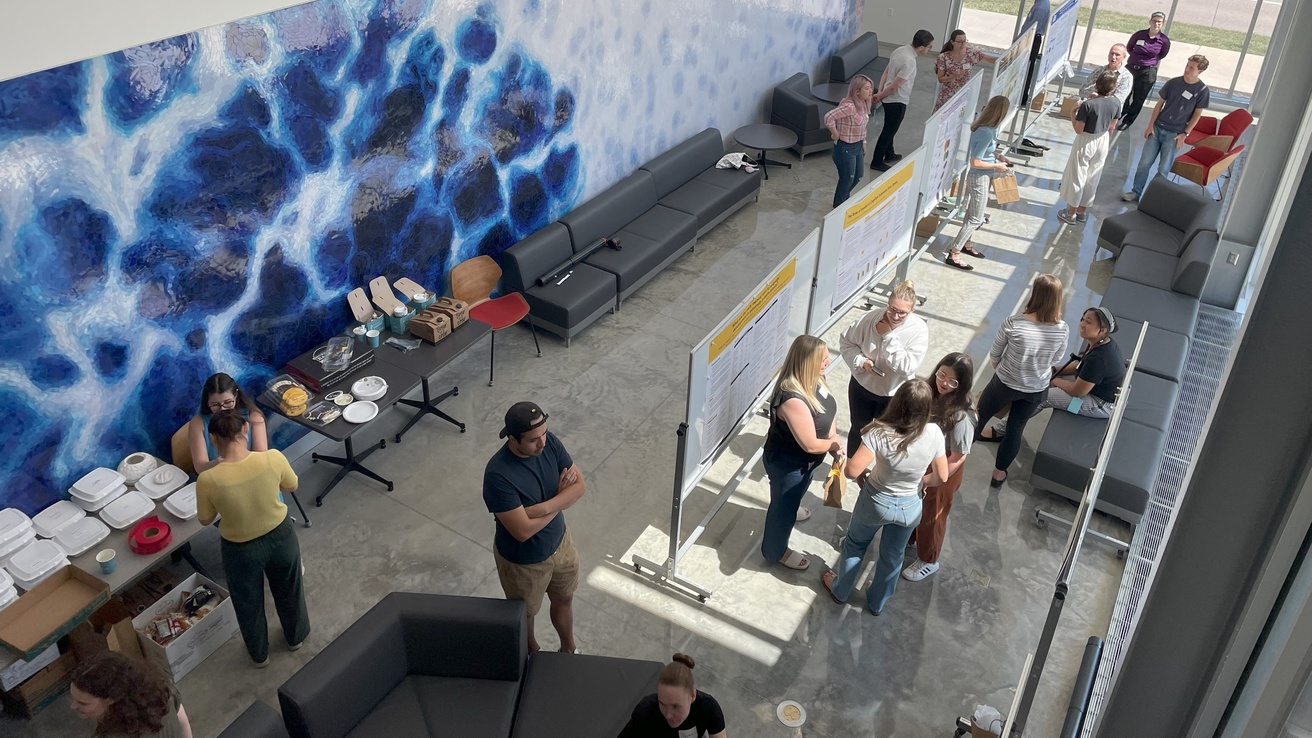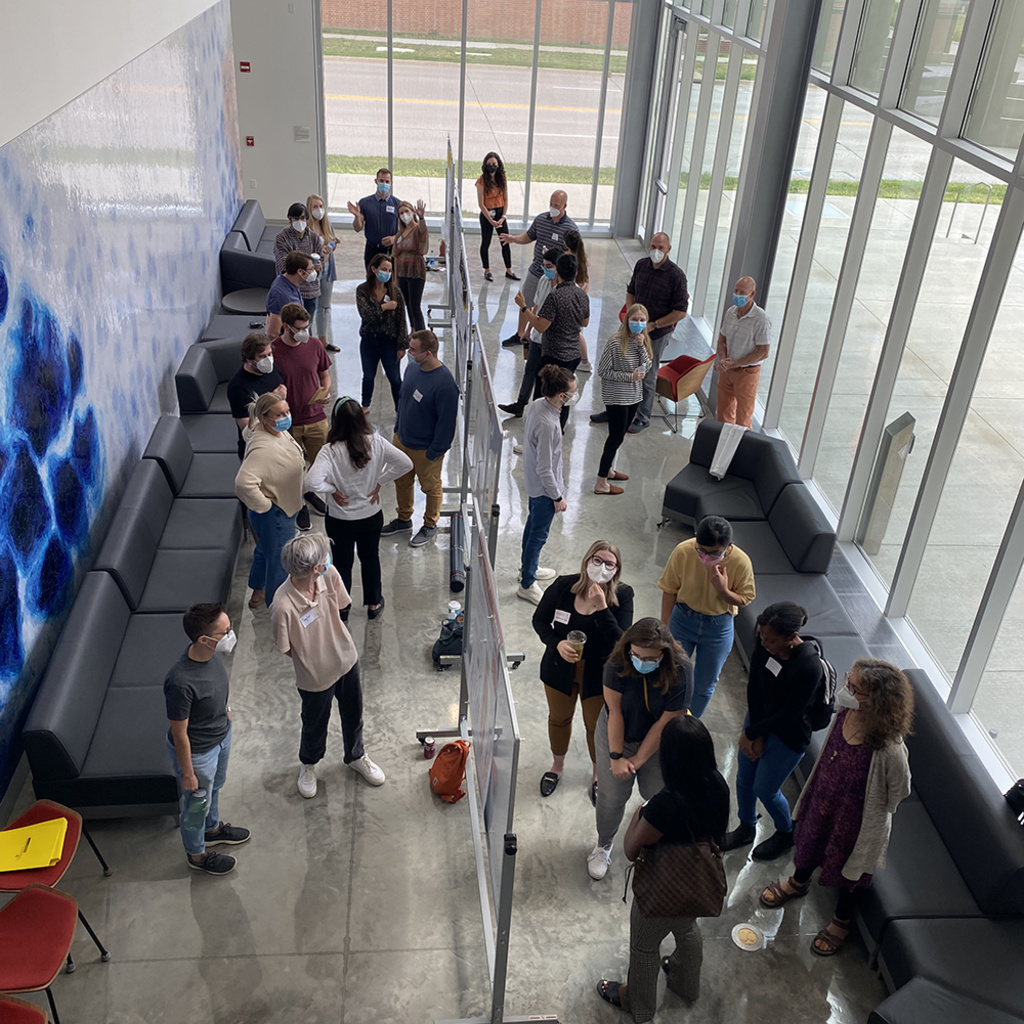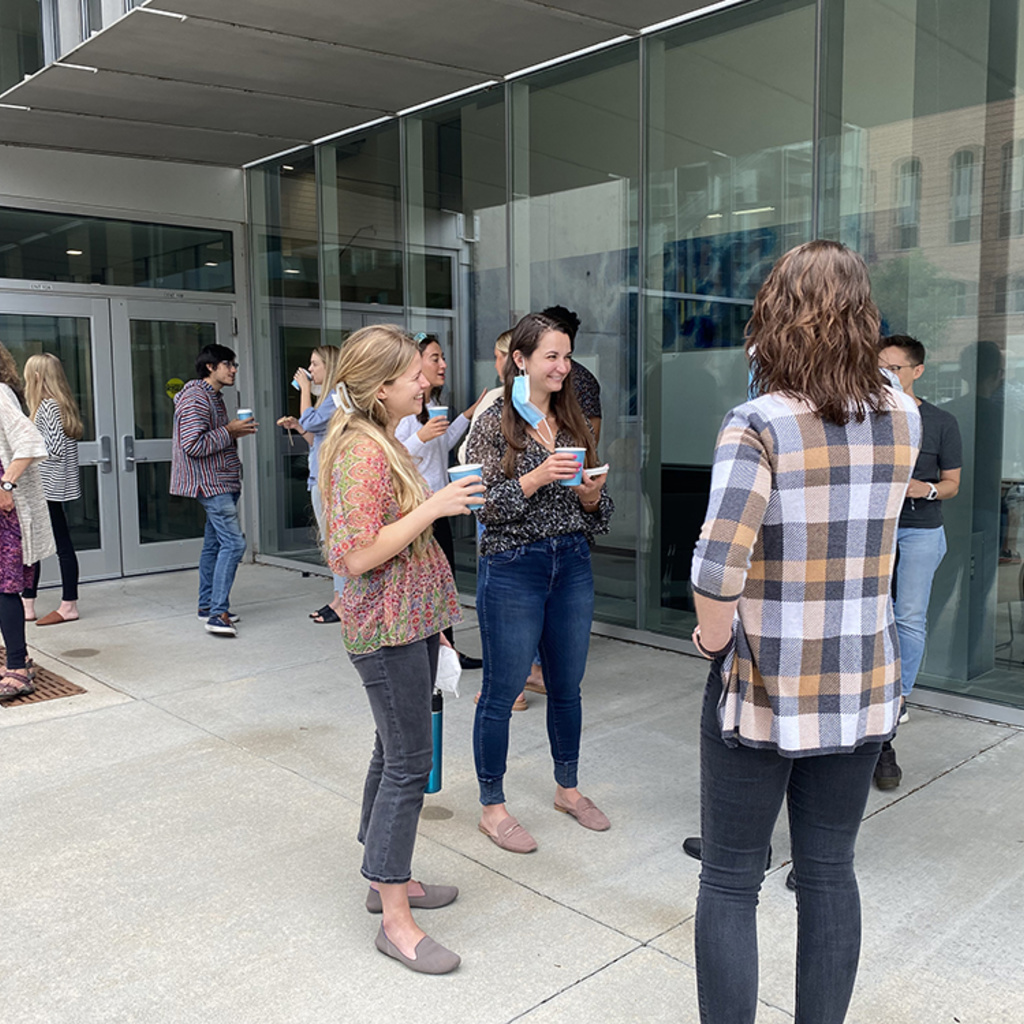Breadcrumb
- Home
- Prospective Students
Prospective Students

Students applying to the Ph.D. program in Psychology may indicate interest in the BBIP on their application for graduate study. Students can apply for admission to the training program with their graduate application or during their first year of graduate work. Students admitted to the training program may then be eligible to apply for support from the training grant. See Program Objective for more information.

What does BBIP offer?
Funding: BBIP funding provides you with the necessary time and resources to get a unique training experience unlike any other. There are two possible funding mechanisms via BBIP.
- Students can apply to be supported for two full years on the training grant.
- BBIP also provides unique opportunities for summer funding to pursue specialized training opportunities in a biomedical lab and gives you the time and resources to develop important skills.
Networking: Developing networking skills is essential at any stage of your graduate and professional training. Participating in BBIP provides you with training in these necessary skills and provides a foundation from which to network.
- Practice networking skills in seminars, rotations, and conferences that BBIP provides travel money for.
- Utilize the local network in the department and program as a foundation.
- Gain a community of like-minded individuals and learn to contact a community of researchers with relevant researchers in a field that you want to get into.
Professional development: Learning various advanced professional development skills will provide a solid foundation for beginning your career. BBIP offers a multitude of professional development opportunities.
- Writing workshops
- Learn the art and science of enhancing your CV.
- Gain confidence in your writing abilities.
- Learn how to apply for grants (e.g., where to find them, how to write them, who to talk to)
- Communication/Dissemination
- Practice and fine-tune “elevator talks” with peers and faculty.
- Gain knowledge in ways to discuss your research in a way that reaches a multi-disciplinary audience.
- Work-Life balance
- Learn from post-docs, researchers, clinicians, doctors, faculty, and other relevant professionals on how to develop skills to manage stress.
- Additional funding resources
- Learn about additional opportunities to support your training and research.
Skills training: BBIP offers a one-of-a-kind opportunity to enhance your graduate experience and develop your unique research program through specialized training tailored to your own interests. Exposure to this training is accomplished through laboratory rotations (for list of faculty mentors/areas of training, see the Faculty Mentors page).
- Gain exposure to laboratory techniques (e.g., methodology) in fields including, but not limited to:
- Genetics
- Neuroscience
- Epidemiology
- Immunology
- Tumor Biology
- For a more inclusive list see Faculty Mentors.

How to apply
The Ph.D. program of the Department of Psychological and Brain Sciences has a strong emphasis on preparation for research, teaching, and scholarly endeavor, whether in academic settings or in industrial, governmental, or medical institutions. The intent is to produce graduates who are deeply committed to the study of psychology, familiar with fundamental knowledge about psychological processes, well trained in the methods and techniques for careful investigation of basic and applied problems, and determined to make contributions to the discipline of psychology and to society. Our graduate students are highly successful, as evidenced by numerous external and internal awards.
- All prospective students must first apply to the Department of Psychological and Brain Sciences.
a. Students applying to the Ph.D. program in Psychology should indicate interest in the BBIP on their application for graduate study (e.g., within personal statement). - Upon acceptance to the University of Iowa, students will receive instructions on applying to BBIP.
- Students admitted to the Training Program may then be eligible to apply for support from the Training Grant.
Note. Students can also apply to BBIP during their first year of graduate work in Psychological and Brain Sciences
UI Non-Discrimination Statement
The University of Iowa prohibits discrimination in employment, educational programs, and activities on the basis of race, creed, color, religion, national origin, age, sex, pregnancy, disability, genetic information, status as a U.S. veteran, service in the U.S. military, sexual orientation, gender identity, associational preferences, or any other classification that deprives the person of consideration as an individual. The University also affirms its commitment to providing equal opportunities and equal access to University facilities.
Students with Disabilities
The University is committed to supporting students with disability needs and has extensive services to assist students with disabilities. Accommodations are available for students who require alternative formats, such as enlarged text, Braille, audio, or Jaws/eformat for required readings. American Sign Language interpreters, English transliterators, on-site and remote captioning services, and other speech-to-text services are provided for deaf/hard of hearing students. Available technology includes screen readers, literacy software, scan-and-read software, voice recognition software, screen enlargers, and OCR scanning software. At the libraries, there is a personal librarian program for users with disabilities. Wheelchair-accessible computers are available in all library locations and Assistive Technology is available on library public workstations. For more information, visit Student Disability Services.
The Department of Psychological and Brain Sciences is situated in a new building (2020) which was built to comply with universal design strategies.
- Classrooms are designed to accommodate limitations in mobility, hearing, and sight.
- All rooms and all working spaces within rooms (including labs) were designed to accommodate wheelchairs.
- Bathrooms all have stalls that accommodate wheelchairs.
- Elevator access to all levels, including a half level.
- Evacuation chairs are in stair wells for safe exit.
- Braille signage for every room to accommodate limited vision.
Further Information
More Information about the program sequence and applying to the program.